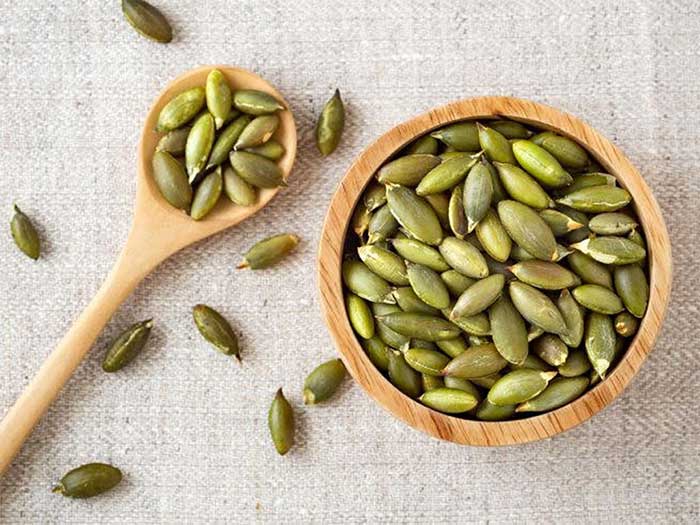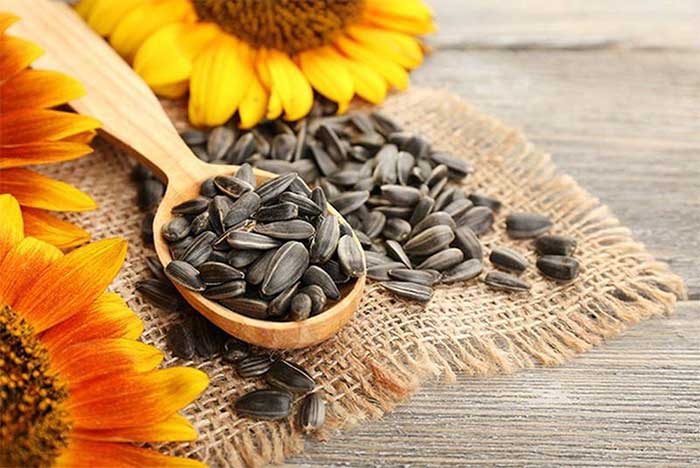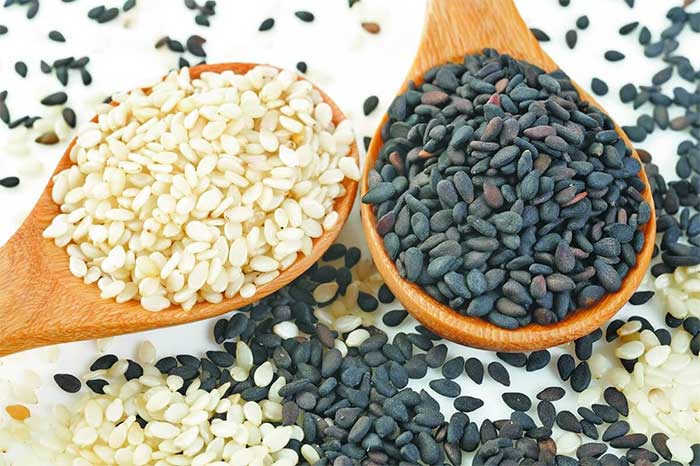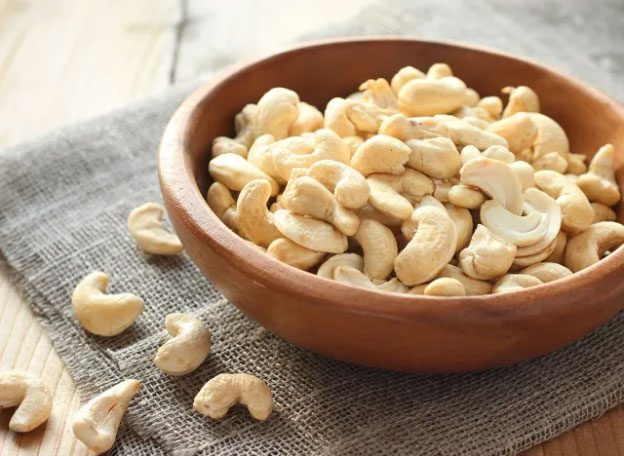Regularly incorporating nuts into your diet can lower blood fat levels, reduce the risk of cardiovascular diseases, and significantly control blood sugar levels.
Pumpkin Seeds

Pumpkin seeds may prevent the development of various cancers.
A small amount of pumpkin seeds can provide a significant amount of healthy fats, magnesium, and zinc. Pumpkin seeds are rich in antioxidants, reduce inflammation, and protect cells from harmful free radicals. Some studies suggest that pumpkin seeds can prevent the development of cancers such as breast cancer and prostate cancer.
A quarter cup of pumpkin seeds contains nearly half the recommended daily intake of magnesium. Magnesium has been shown to benefit blood pressure and help prevent sudden cardiac arrest, heart attacks, and strokes.
This type of seed can improve cardiovascular health by lowering blood pressure and blood fats, two critical factors that influence heart disease risk. Pumpkin seeds are also a good source of fiber, promoting digestion. A high-fiber diet has been shown to reduce the risk of type 2 diabetes and obesity. Along with pumpkin seeds, pumpkin oil is also a nutritious food, particularly rich in omega-6 fatty acids.
Sunflower Seeds

Sunflower seeds are beneficial in controlling blood sugar levels.
Studies show that consuming nuts (including sunflower seeds) is associated with lower rates of cardiovascular diseases, high cholesterol, and high blood pressure. The vitamin B3 and fiber in sunflower seeds reduce harmful cholesterol levels in the blood and cardiovascular-related issues. Sunflower seeds are particularly helpful in controlling blood sugar levels, especially in patients with type 2 diabetes.
This type of seed contains vitamin E, flavonoids, and other plant compounds that can reduce inflammation. Vitamin E found in sunflower seeds can significantly support vision, helping to prevent age-related macular degeneration.
Sunflower seeds are a rich source of various vitamins and minerals such as zinc and selenium, which can support your immune system and enhance your ability to fight off viruses, according to WebMD. However, this type of seed contains quite a few calories, and if consumed in large amounts or if salted and processed, it may lead to weight gain.
Sesame Seeds

This type of seed is high in magnesium and can help lower blood pressure.
According to Healthline, some studies suggest that regularly eating sesame seeds can reduce cholesterol and triglyceride levels—factors that increase the risk of heart disease. This seed is high in magnesium, which helps lower blood pressure. The vitamin E and other antioxidants in sesame seeds may prevent plaque buildup in arteries, maintaining healthy blood pressure.
Sesame seeds are rich in protein and healthy fats, supporting blood sugar control. This seed is also abundant in antioxidants that boost the immune system due to its nutrient content, including zinc, copper, manganese, vitamin B6, and vitamin E, alleviating knee pain caused by arthritis.
Cashews

As a fiber-rich food, cashews help regulate blood sugar levels.
Cashews are high in protein, contributing to healthy muscles and supporting bodily functions. As a fiber-rich food, cashews aid in regulating blood sugar levels. They are also rich in antioxidants, helping reduce inflammation and benefiting your cardiovascular health.
A 2017 study published in the American Journal of Clinical Nutrition found that incorporating cashews into your diet could lower LDL “bad” cholesterol, which causes harmful fat accumulation in arteries. Additionally, adding cashews to your diet can significantly prevent spikes in blood sugar levels.
This type of seed is full of fatty acids and other brain-boosting nutrients that enhance overall brain function. Potassium, magnesium, and unsaturated fats in cashews have been shown to reduce blood pressure, according to a 2019 study.



















































